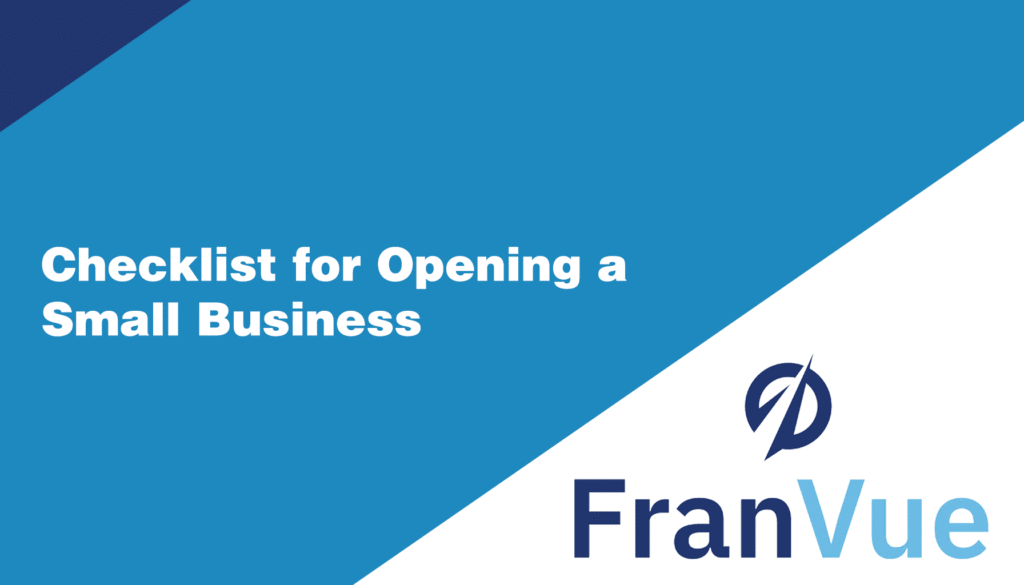Opening a business can seem like a lot of work. As a prospective business owner, there are many financial, legal, and practical requirements that you will need to meet before starting a business, and that’s why you need to be organized and focused.
In this post, we will give a checklist that will help you turn your passions into practical steps and move you toward the path of owning a successful business.
1. Select a Business Name and Legal Structure
A business name is one of the first things you need to determine when starting a business. If you want to be a sole owner, you will need to file the business name as a Doing Business As (or DBA) name. If you don’t, all the business documents will bear your personal legal name.
Your legal structure will not only determine the daily operations of your business, but it will also impact how you plan your taxes. Here are the four most common legal structures for businesses:
- Sole proprietorships
- Corporations
- Partnerships
- Limited Liability Companies (LLCs)
The simplest structure to set up on this list is sole proprietorship, but a lot of entrepreneurs like the extra protection that LLC provides.
2. Create a Business Plan
The next step is to create a well-structured plan for the business. Aside from helping you remain focused on your important business activities and goals, a business plan is also an important document that lenders will want to see before giving you a loan.
Typically, a business includes the following:
- Business description
- Management structure
- Marketing plan
- Competitive analysis
- Market analysis
- Financial projections
- Funding needs
The first page of your business plan should be an executive summary, showing the key points and stating the next steps for your business.
3. Apply for an EIN
If you are setting up your business as a corporation, partnership, or LCC, or you will need to hire employees, you will require a federal Employer Identification Number. Think of this number as a personal social security number for your company. It’s what the Internal Revenue Service (IRS) will use to identify your business.
Even if you are a sole business owner, you may still want to get an EIN, as it makes the whole tax process easier. It will also save you from having your personal details written on your business documents
4. Get a Business Bank Account
When setting up a business, you may be tempted to use your personal money to renovate the space or buy equipment. But combining your personal and business expenses can lead to a problem.
Aside from leading to confusion when completing tax forms, this can also make you personally liable if your business folds or is sued.
Most conventional banks provide some business services on-site, although some banks only operate virtually. A lot of entrepreneurs prefer physical establishments to online ones due to the ease of depositing cash.
Other benefits of having a business bank account include access to Business Lines Of Credit (LOCs) or certain features that can make e-retail or other business processes a lot easier.
5. Get Licenses
You may need to fulfill additional legal requirements to operate a business depending on your location and the industry you are venturing into. A lot of counties and cities will require that you get a license to start a local business, even if you would be working from home.
Some states may also need you to obtain a sales tax permit before selling physical goods. You will also require specific licenses from the state to operate in certain industries, including:
- Real estate
- Banking
- Barbers
- Physicians
- Private investigators
- Building contractors
Contact your state’s Department of Consumer Affairs (DCA) to find out the industries that require special licensing.
Lastly, you are going to need a federal permit to do any of the activities below:
- Drug manufacture
- Broadcasting
- Investment advertising
- Offering ground transportation
- Making meat products
- Selling tobacco, alcohol, or firearms
In compliance with local and federal regulations, it’s important to display your licenses at your place of business at all times.
Creating an Accounting System
Bookkeeping will be one of the most important parts of your operations as a business owner. It would be best if you have a system that allows you to manage your cash flow, prepare for taxes, and collect information that will indicate your overall performance.
Business owners have three different options when it comes to bookkeeping:
- Doing the accounting work themselves using a software
- Outsourcing to an accounting company
- Hire a bookkeeper or a certified public accountant (CPA)
The more your business grows, the more difficult it will become to handle your books by yourself, so it’s advisable to seek assistance with books and record-keeping.
Start your search for a franchise today
Considering the financial and legal requirements to open a start-up, it is clear that opening a franchise comes with many perks. The requirements for setting up a franchise are simplified to get your business up and running, so you can become a business owner with less hassle.
Visit our website to find franchise opportunities in your local area today.


